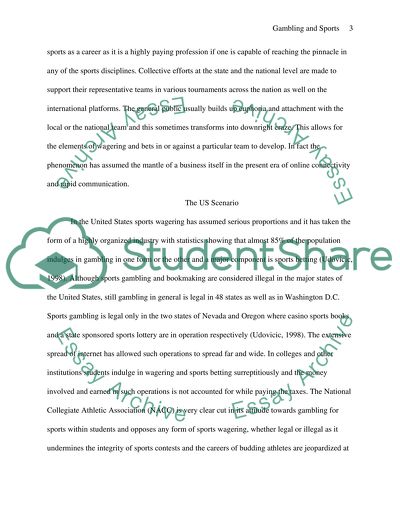Cite this document
(Gambling and Its Effect on Professional and College Sports Case Study, n.d.)
Gambling and Its Effect on Professional and College Sports Case Study. Retrieved from https://studentshare.org/sports-and-recreation/1557794-gambling-and-its-effect-on-professional-and-college-sports
Gambling and Its Effect on Professional and College Sports Case Study. Retrieved from https://studentshare.org/sports-and-recreation/1557794-gambling-and-its-effect-on-professional-and-college-sports
(Gambling and Its Effect on Professional and College Sports Case Study)
Gambling and Its Effect on Professional and College Sports Case Study. https://studentshare.org/sports-and-recreation/1557794-gambling-and-its-effect-on-professional-and-college-sports.
Gambling and Its Effect on Professional and College Sports Case Study. https://studentshare.org/sports-and-recreation/1557794-gambling-and-its-effect-on-professional-and-college-sports.
“Gambling and Its Effect on Professional and College Sports Case Study”. https://studentshare.org/sports-and-recreation/1557794-gambling-and-its-effect-on-professional-and-college-sports.


